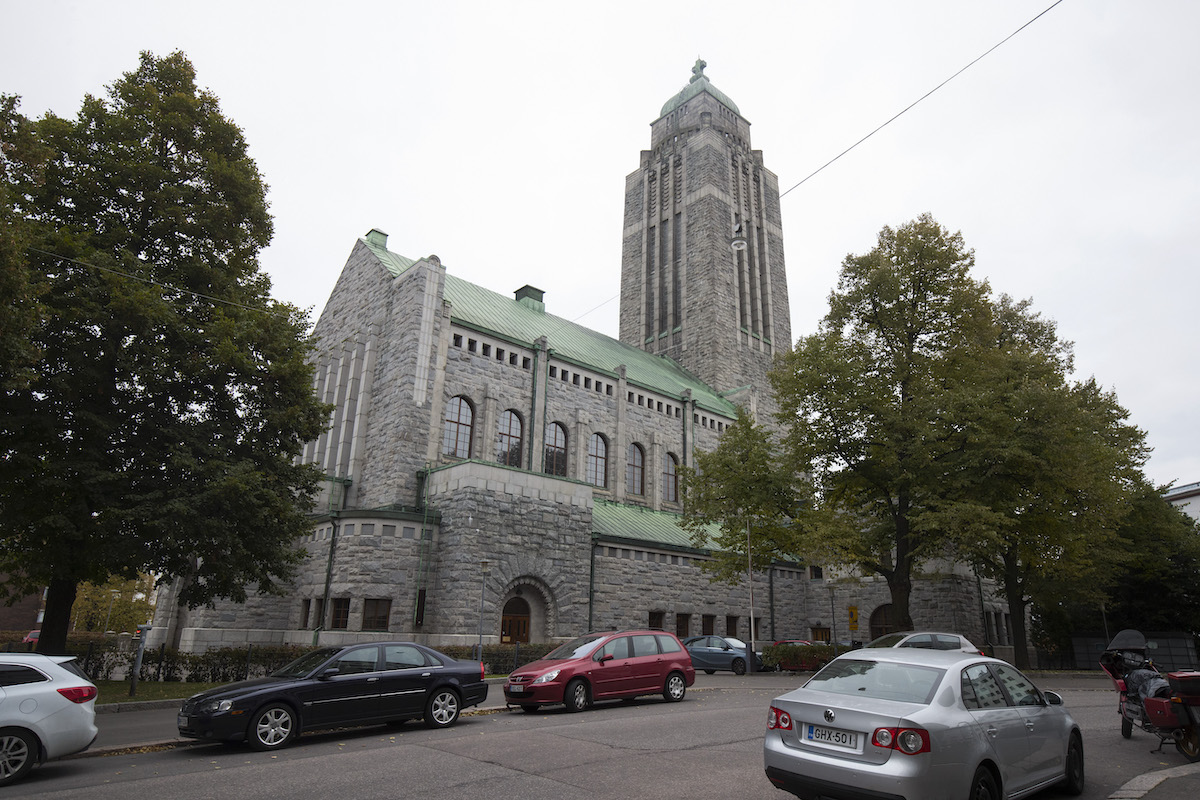At the end of March 2022, Finnish member of Parliament Päivi Räsänen and Bishop Juhana Pohjola of the Evangelical Lutheran Mission Diocese of Finland were acquitted on charges of hate crimes—the apparent end to a trial that had drawn widespread international attention and expressions of concern over the erosion of religious freedom in Finland.
Of course, the legal challenges for the two aren’t really over. On April 30, the prosecutor general formally appealed the decision of the District Court of Helsinki. That sets the stage for round two in a battle that could last many years and ultimately end up before the European Court of Human Rights.
Dr. Räsänen and Bishop Pohjola were charged over the 2004 publication of a booklet that presents historic Christian teaching on sexuality—the former as the author of the work and the latter as the publisher. But while the booklet’s theological critique of same-sex marriage was unremarkable upon its publication, the intervening years have seen a dramatic shift in Finnish opinion on the subject. As late as 2010, only 45% of Finns approved the legalization of same-sex marriage, according to the European Union’s Eurobarometer. By 2019, that number had climbed to 74% (same-sex marriage was legalized in Finland in 2017).
That change in public opinion is not surprising; similar shifts have taken place throughout much of the Western world. But what is surprising has been the speed with which those holding contrary opinions in Finland have been subjected to state-sanctioned persecution.
In response to a 2019 complaint, Helsinki police opened an investigation into Dr. Räsänen and Bishop Pohjola. By that time, the booklet had been online for 15 years. The police ultimately concluded no laws had been broken, but the prosecutor general decided to launch her own investigation. She laid hate charges against the two for the booklet in 2021, with the Finnish M.P. facing two additional charges: one for public comments during a radio debate and another for a tweet in which she criticized the Evangelical Lutheran Church of Finland—the state church, of which Dr. Räsänen is a member—for its support of Helsinki Pride. The prosecutor general alleged that these statements constituted incitement to hatred against homosexual people.
Dr. Räsänen and Bishop Pohjola argued they had done no such thing. “As a Christian, I do not want to and cannot discriminate against or despise anyone created by God,” Bishop Pohjola explained when he was first charged. “Every human being, created by God and redeemed by Christ, is equally precious.”
This is basic Christian teaching: All people share inherent worth as those created and loved by God. But also central to Christian teaching is the concept of sin—the idea that human nature is fundamentally flawed as a result of the Fall, that we are all sinners in need of salvation. For this reason, Christians, on the basis of Scripture and natural reason, identify certain behaviors as sin—not in order to denigrate others (we are all sinners) but in order to reveal our need for a Savior. After all, as Dr. Räsänen writes in the booklet under question: “If we deny people the right to feel guilt for their sin, we also deprive them of the joy and assurance of the Gospel. The certainty of heaven rests on Christ’s assured atonement for our very real sins and on His resurrection from the dead.”
Discussions like these more often take place in churches and seminaries than in courtrooms, of course. One would imagine as a result that the case against Bishop Pohjola and Dr. Räsänen would focus primarily on questions of law. But the opposite proved true: During the trial, the prosecutor general questioned the accused at length on their personal beliefs, touching on biblical hermeneutics, their understanding of the nature of sin, and so forth—a “conflation of juridical and theological argumentation,” as Bishop Pohjola puts it, which struck observers as deeply troubling in a courtroom. To many, the trial seemed less about questions of law than about whether the defendants should be allowed to hold the doctrinal positions they did.
The judges overseeing the trial seemed to agree. In their unanimous decision, the three judges acquitted Dr. Räsänen and Bishop Pohjola on all charges, stating that “it is not the role of the district court to interpret biblical concepts.” It was a stunning rebuke to the prosecutor general’s handling of the case and an occasion of great relief for those concerned about freedom of religion and speech.
But it is disappointing that the court, even in acquitting the accused, decided to prejudice public opinion against them by calling their words “offensive.” I say disappointing but not surprising. Western society has long been in a movement away from historic Christian morality, and not only on matters of human sexuality. This is something Dr. Räsänen herself notes in the booklet: “We live,” she writes, “at a phase in history in which the influence of Christian culture upon society is diminishing.” Little could she have known just how quickly that influence would diminish in the years following the booklet’s publication.
One such principle that arose in that Christian context was the very idea of fundamental human rights like freedom of speech and religion. Western society still pays lip service to such rights, but they seem increasingly restricted to a narrower and narrower group of people. Those holding to historic Christian teaching regularly find themselves outside increasingly restrictive boundaries; their ideas are deemed “too offensive” by wider society to be worth protecting. But surely, if freedom of speech and freedom of religion are to mean anything, they must also mean the right to publicly disagree with prevailing cultural dogma—and such disagreement inevitably must offend.
Sadly, even many of those who might have been expected to stand up for the rights of the accused have remained silent. On something as primary as freedom of religion, it is not uncommon for religious leaders with very different theologies to speak up in defense of each other. An attack on religious freedom, after all, concerns people of all faith. The situation in Finland certainly drew comments of concern from conservative Christians globally; the International Lutheran Council, for example, rallied ecclesiastical leaders from 45 confessional Lutheran church bodies worldwide in opposing the prosecution. But the leaders of the state church in Finland were conspicuous by their silence on so clear and fundamental a case—to their great shame.
However the current case ultimately concludes, freedom of religion and speech in Finland have suffered a grievous blow. By prosecuting a bishop and a member of Parliament in a long, drawn-out court battle, the message presented to the wider public is clear: If you believe certain things in Finnish society, you may not speak publicly about them. The trial process itself is punishment enough, regardless of whether a conviction results. Just ask Dr. Räsänen and Bishop Pohjola.
We should pray that higher courts ultimately rule in favor of the accused. If they do not, it will not be Christians in Finland alone who suffer. A negative ruling, especially if upheld by the European Court of Human Rights, could have implications for the entire continent. The result would be a devastating curtailment of religion and speech rights in Europe for Christians and others who reject the prevailing cultural orthodoxy on matters of human sexuality.

